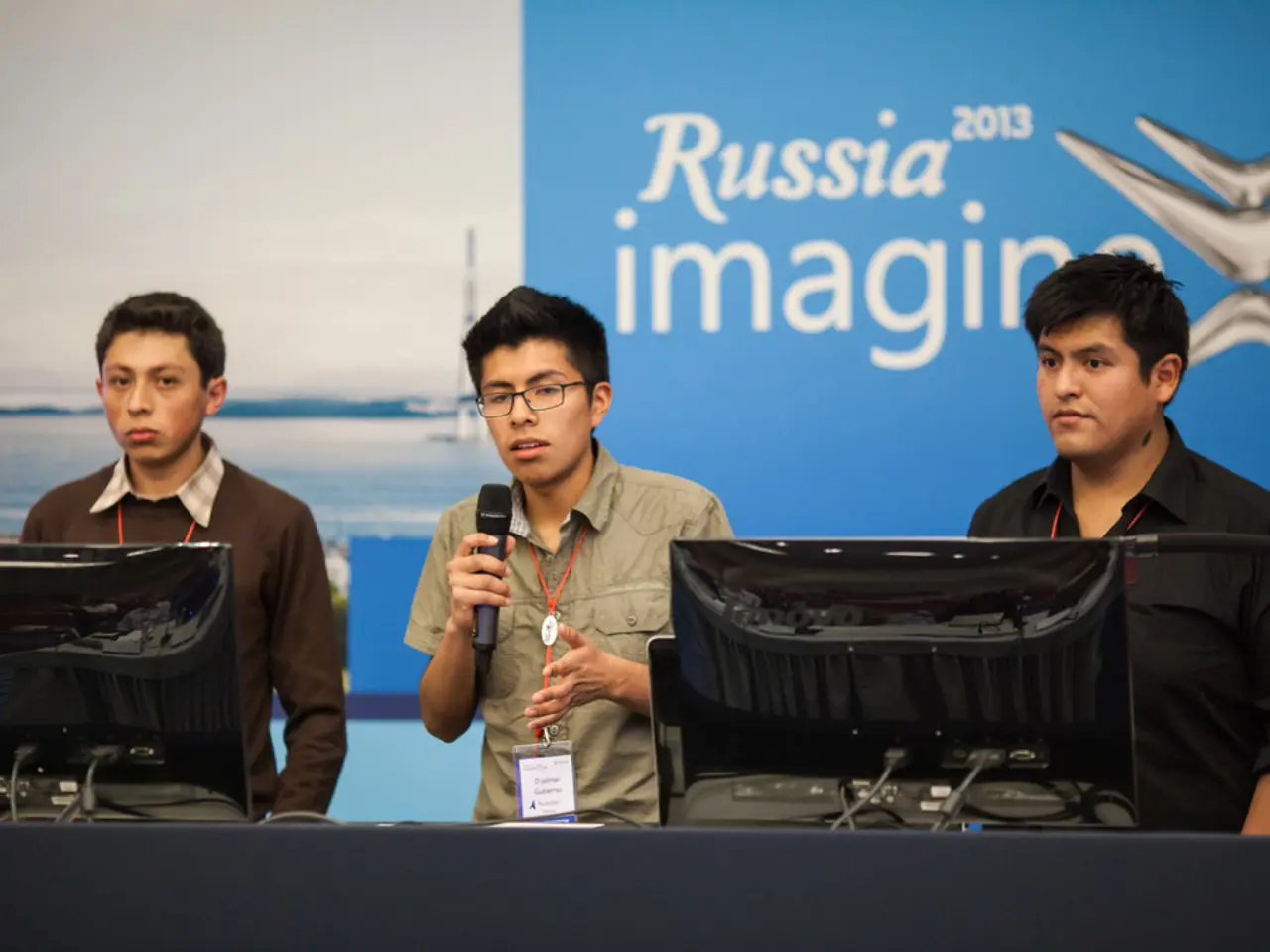In Russia, WhatsApp and Telegram dominate as the preferred messaging platforms.
In Russia, as of August 2025, a partial block on voice calls in popular messaging apps WhatsApp and Telegram has been implemented, disrupting the daily communication of millions of users. This move, initiated by Roskomnadzor, aims to curb criminal misuse but has raised concerns about its impact on everyday communication and digital control [1][2][3].
According to recent statistics, at least once a day, 81.8 million Russians use WhatsApp, making it the most popular mobile application in the country, with a monthly reach of 96.2 million people. Telegram follows closely behind, with a daily reach of at least once a day for 67.4 million Russians and a monthly reach of 89.8 million people [1][2].
Roskomnadzor announced the measures for "partial restriction of calls" on August 13, 2025, due to concerns about deceiving and extorting money, and involvement in subversive and terrorist activities [1]. The official reasoning is to combat criminal activity based on operational data and citizen complaints about fraud linked to these calls [1][2][3]. However, some critics question the move's focus, as normal phone calls are a larger source of fraud [2][3].
The impact on users has been significant, with many expressing frustration and isolation due to the loss of a reliable communication method. Calls have become unreliable or impossible, forcing some to switch to alternative platforms like FaceTime, though these are not universally accessible [4][5]. The restrictions vary by region and mobile carrier, indicating inconsistent enforcement so far [5].
This step is also seen as part of Russia's strategic efforts to direct citizens toward government-managed alternatives like the newly launched "Max" app, which models Chinese apps like WeChat and aims to increase domestic digital control [3]. Experts warn that wholesale blocking of foreign encrypted services could further isolate Russians and harm the economy while increasing societal stress [3].
Minsvyaz, the Russian telecommunications regulator, believes that limiting voice calls in foreign messengers will reduce the number of Russians being deceived by scammers. Access to voice services in foreign messengers will be restored if they comply with Russian legislation [1].
In addition to WhatsApp and Telegram, VK, a Russian social media platform, has a monthly reach of 72.9 million people in Russia. Sberbank, a Russian financial institution, has a monthly reach of 78.9 million people, placing it third behind WhatsApp and Telegram [1].
As the situation evolves, the implications of this partial restriction on voice calls in WhatsApp and Telegram continue to be a topic of discussion and concern for Russian citizens and digital rights advocates alike.
References: 1. Roskomnadzor announces partial restriction of calls in foreign messengers 2. WhatsApp and Telegram voice calls restricted in Russia 3. Russia's digital control: The case of Max app and the partial block on WhatsApp and Telegram 4. Frustration and isolation: Russians struggle with partial block on WhatsApp and Telegram 5. The inconsistent enforcement of Russia's partial block on WhatsApp and Telegram
Technology-based platforms like WhatsApp and Telegram have been subjected to partial restrictions on voice calls due to concerns about misuse, with Roskomnadzor aiming to curb criminal activities. In response, many Russians have turned to alternative communication methods such as FaceTime and the government-managed "Max" app, fueling discussions around digital control and its potential impacts.




